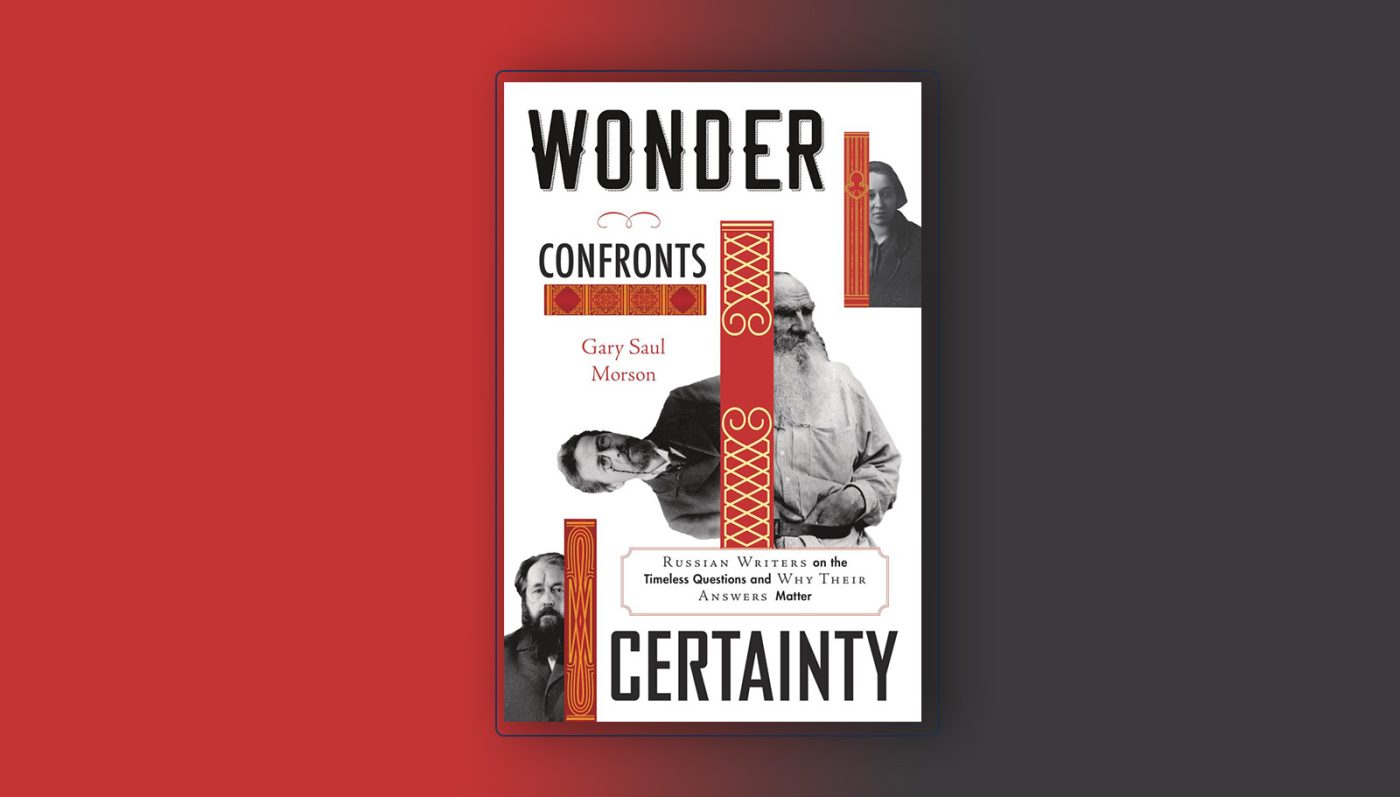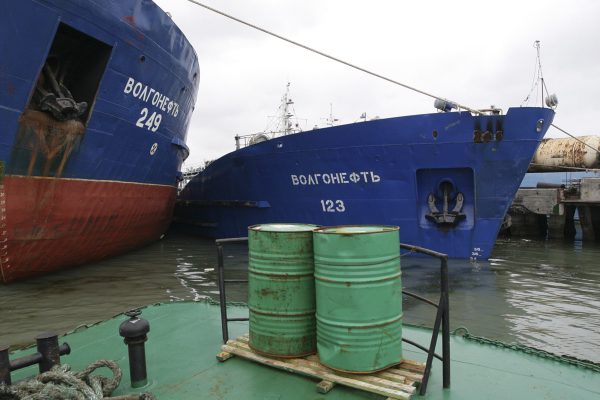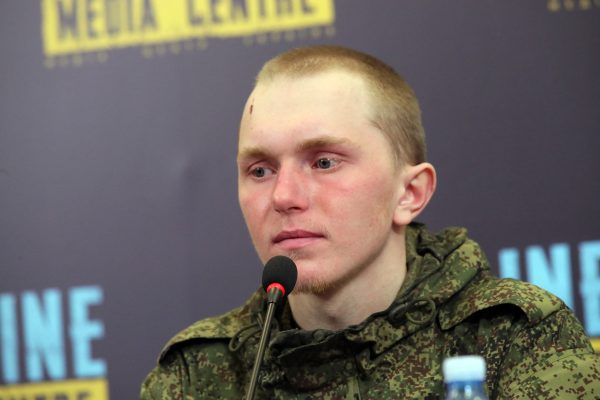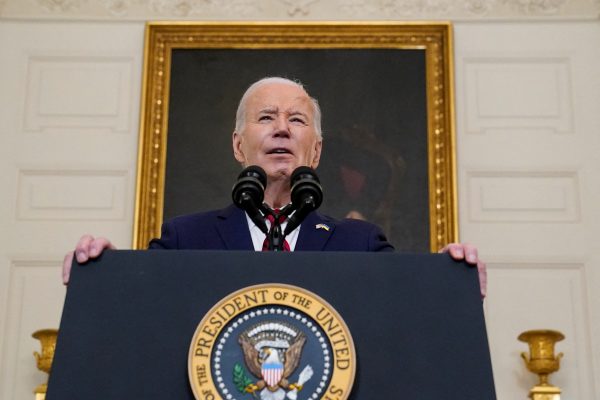What happens next in Russia? Some 25 experts from 16 countries give very plausible answers in a new paper. Each scenario they suggest is possible.
Their starting point is a huge uncertainty, the exit of Vladimir Putin, now aged 71. It’s an event that could happen next week, next year, or in another decade. After Putin, some experts expect more of the same; others suggest a new course.
Instead of looking at today’s facts and figures, forecasters could look back, way back, to gain the perspective of Russian literature’s repeated themes. A book by Northwestern University Professor Gary Saul Morson provides a substantial grist for understanding today’s possibilities.
His Wonder Confronts Certainty: Russian Writers on the Timeless Questions and Why Their Answers Matter (Harvard University Press, 2023) analyzes not only writers such as Dostoevsky and Chekhov but also political operators including Lenin and Stalin.
It assesses not only the wonder evoked by many authors, but also their persistent efforts to find answers on the meaning of life, good, evil, and human freedom in the context of Russia’s turbulent history.
The timeless questions include: Ethics and materialism — what is not to be done? Are good and evil just human constructs? Who is not to blame for what has gone wrong?
Morson adapts Mikhail Bakunin’s concept of the non-alibi — that no one can evade responsibility for their actions.
A pervasive theme in Russian literature traced by Morson is how the aspiration to relieve human suffering can lead to profound empathy or bloodthirsty tyranny. High ideals can provoke execrable behavior.
Some wrote poems and stories meant to explore and understand the human condition. Some were pilgrims wandering among ideas, others were idealists, often incorrigible and disappointed. A third group worshipped violence; members of the self-styled intelligentsia, they were devoted to brutal revolution.
One year after serfdom ended in 1861, the proclamation of Young Russia, by P.G. Zaichnevsky and others, declared: “There is only one way out of this oppressive and terrible situation . . . a bloody and merciless revolution . . . ‘We know rivers of blood will flow and innocent victims will perish . . . but we still welcome this approach.”
Why did “People’s Will” revolutionaries assassinate the “Tsar Liberator,” Alexander II, in 1885?
After succeeding his reactionary father in 1856, he eliminated serfdom in 1861, established a Western-style court system, modernized the military, with classes in reading and writing, and was planning to introduce a constitution when he was killed.
Apologists for the assassination averred that nothing could be reformed without violence. They ignored the fact that in 1861 some 55 million peasants had obtained freedom and a small piece of their own land.
“Young Russia” planned to kill not just supporters of the old regime but also those claiming to be neutral. Long before Soviet times, the intelligentsia favored maximalism in action as well as in rhetoric. The routine use of “merciless” to praise certain actions became a staple of revolutionary language and continued under Lenin and Stalin.
This outlook reveled in the murder of innocents as well as opponents. It rationalized Lenin’s taking of random hostages and Stalin’s purges. For Vladimir Putin, it may well have helped justify the dynamiting of several urban apartment buildings in 1999, blaming it on terrorists to give a casus belli against Chechnya, and using prisoners and ethnic minorities as cannon fodder in the full-scale invasion of Ukraine.
Morson details the violence praised, condemned, or merely described by Russian and Soviet authors. For example, Vasily Grossman’s Life and Fate describes the last moments of a Jewish woman in a Nazi gas chamber.
An elderly woman in the same book believes that the state cannot deprive its victims of their humanity. Morson comments that life is “shaped by fate, but meaning depends on what we choose.”
On the other hand, the memoirs of some who survived Stalin’s torture chambers and the gulag reflect the fact that extreme brutality can destroy the humanity of some people. Morson’s quotes from such memoirs will drive readers to tears and make them wonder how this system, and its present-day incarnation, could endure.
If Morson’s book has a hero, he writes, it is Anton Chekhov. Criticized for not adopting some “tendency,” he insisted that the writer’s job was to deepen our understanding of the facts of the world — by whom, how, and under what conditions questions arise, not how to answer them.
Such a neutral stance is not welcome under a regime that increasingly asserts that those not with it are against it. The weight of history underscores the difficulty of replacing tyranny with freedom.
Walter Clemens wrote ‘Blood Debts: What Putin and Xi Owe Their Victims’ (Washington, DC: Westphalia, 2023). He is an Associate at Harvard University Davis Center for Russian and Eurasian Studies and Professor Emeritus of Political Science at Boston University.
Europe’s Edge is CEPA’s online journal covering critical topics on the foreign policy docket across Europe and North America. All opinions are those of the author and do not necessarily represent the position or views of the institutions they represent or the Center for European Policy Analysis.





